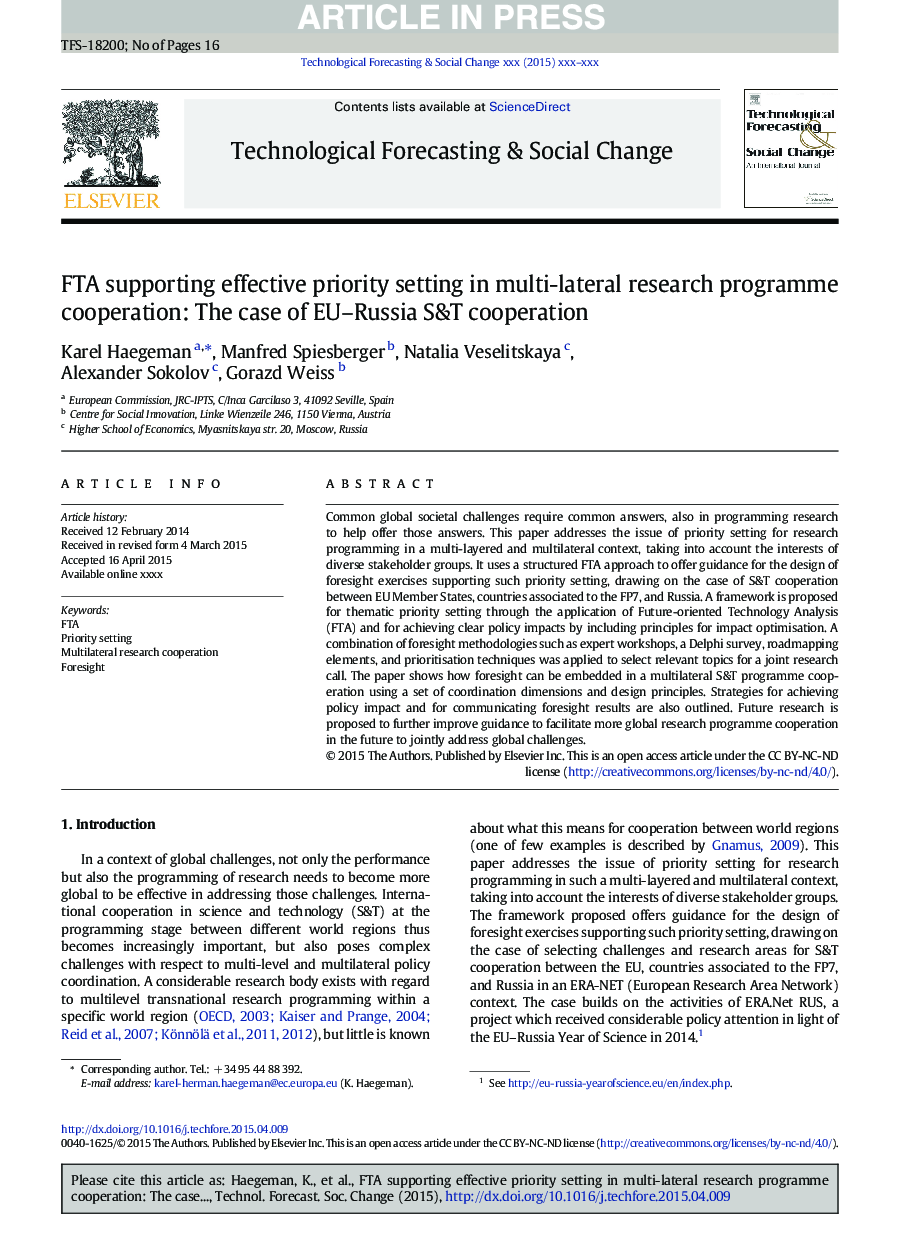| Article ID | Journal | Published Year | Pages | File Type |
|---|---|---|---|---|
| 7256354 | Technological Forecasting and Social Change | 2015 | 16 Pages |
Abstract
Common global societal challenges require common answers, also in programming research to help offer those answers. This paper addresses the issue of priority setting for research programming in a multi-layered and multilateral context, taking into account the interests of diverse stakeholder groups. It uses a structured FTA approach to offer guidance for the design of foresight exercises supporting such priority setting, drawing on the case of S&T cooperation between EU Member States, countries associated to the FP7, and Russia. A framework is proposed for thematic priority setting through the application of Future-oriented Technology Analysis (FTA) and for achieving clear policy impacts by including principles for impact optimisation. A combination of foresight methodologies such as expert workshops, a Delphi survey, roadmapping elements, and prioritisation techniques was applied to select relevant topics for a joint research call. The paper shows how foresight can be embedded in a multilateral S&T programme cooperation using a set of coordination dimensions and design principles. Strategies for achieving policy impact and for communicating foresight results are also outlined. Future research is proposed to further improve guidance to facilitate more global research programme cooperation in the future to jointly address global challenges.
Keywords
Related Topics
Social Sciences and Humanities
Business, Management and Accounting
Business and International Management
Authors
Karel Haegeman, Manfred Spiesberger, Natalia Veselitskaya, Alexander Sokolov, Gorazd Weiss,
